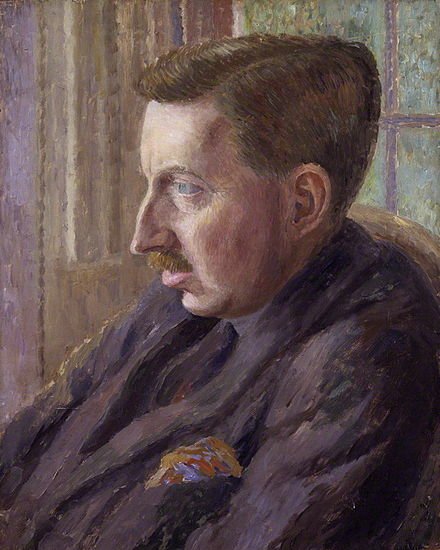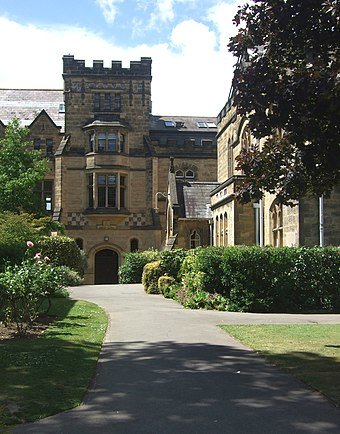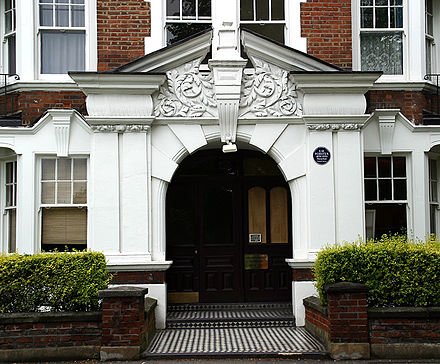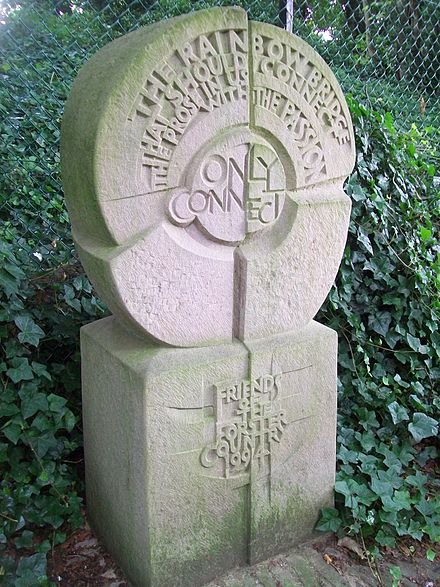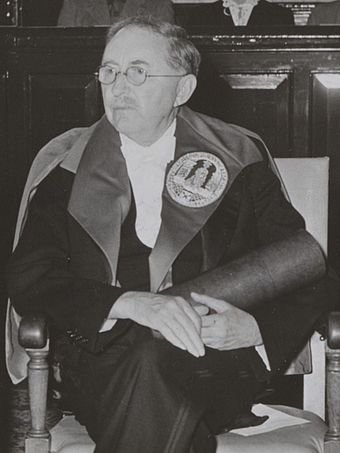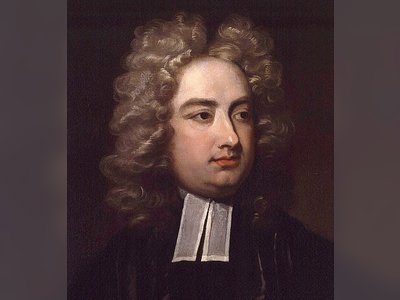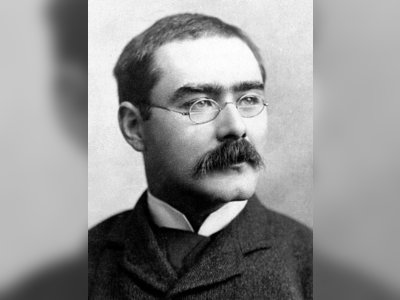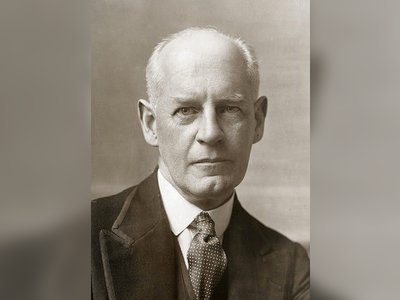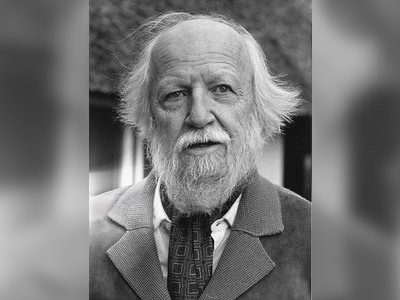British Heritage
Remember, Cherish, Learn.
beta
E. M. Forster - A Class Act who missed the Nobel Prize
Contribution to British Heritage.
Edward Morgan Forster, better known as E. M. Forster, was a prominent figure in English literature and an essential contributor to British heritage. Born on January 1, 1879, in London, he left an indelible mark on the literary landscape through his fiction, essays, and librettos. Forster's novels were deeply concerned with exploring class differences and societal hypocrisy, making him an important commentator on the British social structure during the late 19th and early 20th centuries.
Forster's works delved into the complexities of human relationships and questioned the traditional norms and values that governed British society. His keen observations and subtle critiques of the British class system and its underlying prejudices have left a lasting impact on the understanding of the country's history and culture.
E. M. Forster's literary career was marked by notable successes and recognition, but one honor he never achieved was the Nobel Prize in Literature. Despite being nominated for the prestigious award an impressive 13 times, he never secured the coveted accolade. However, this lack of a Nobel Prize did not diminish his status as one of England's most esteemed authors.
Among Forster's most celebrated works are "A Room with a View" (1908), "Howards End" (1910), and "A Passage to India" (1924). The latter brought him his greatest triumph and has become a literary classic that remains widely read and studied to this day.
"A Room with a View" is a delightful and optimistic novel that follows the journey of Lucy Honeychurch, a young English woman, during her trip to Italy. The story revolves around the choices she must make when torn between two suitors, embodying the struggle between social conventions and personal desires.
"Howards End" is a profound exploration of Edwardian middle-class society, personified by three distinct groups: the intellectual Schlegels, the materialistic Wilcoxes, and the aspirational Basts. Through these characters, Forster dissects the prevailing societal norms, offering a thought-provoking narrative that challenges readers to reevaluate their own values and beliefs.
However, it was "A Passage to India" that solidified Forster's literary legacy. This seminal work delves into the complexities of colonial India and the fraught relations between the East and the West. Through the story of Adela Quested, an Englishwoman, and Dr. Aziz, an Indian, the novel exposes the cultural clashes and misunderstandings that mar the interactions between colonizers and the colonized. It is an extraordinary examination of human prejudices, racial tensions, and the quest for understanding and empathy.
Forster's upbringing and educational background played a significant role in shaping his writing and worldview. He was the only child of Anglo-Irish Alice Clara "Lily" and Welsh architect Edward Morgan Llewellyn Forster. After the untimely death of his father when he was just a toddler, Forster and his mother moved to Rooks Nest, Hertfordshire, which later inspired the house "Howards End" in his novel of the same name.
His time at King's College, Cambridge, and membership in the Apostles discussion society profoundly influenced his intellectual development. Forster's association with the Bloomsbury Group in the 1910s and 1920s further enriched his perspectives on literature, philosophy, and art.
Forster's sexuality, though concealed from the public, played a significant role in his personal life and artistic expression. He never married but had several male lovers throughout his life, which may have influenced some of his works, particularly "Maurice," a posthumously published novel that explores a homosexual love story.
Edward Morgan Forster, a champion of individual liberty and penal reform, was a vocal advocate for humanism. His views on individuality, freedom, and the interconnectedness of human beings are evident in his novels, where characters often challenge societal norms and seek personal connections beyond the constraints of their respective classes.
Forster's literary style often incorporated symbolism and explored the mystical or otherworldly aspects of human experience. His writing delved into the complexities of human psychology and relationships, leaving readers with a sense of profound understanding and empathy.
Despite never receiving the Nobel Prize, E. M. Forster's contributions to British heritage and literature have endured over time. His ability to challenge prevailing societal norms and his profound insights into the human condition make him a literary giant whose works remain relevant and influential to this day.
Forster's works delved into the complexities of human relationships and questioned the traditional norms and values that governed British society. His keen observations and subtle critiques of the British class system and its underlying prejudices have left a lasting impact on the understanding of the country's history and culture.
Success and Literary Contributions
E. M. Forster's literary career was marked by notable successes and recognition, but one honor he never achieved was the Nobel Prize in Literature. Despite being nominated for the prestigious award an impressive 13 times, he never secured the coveted accolade. However, this lack of a Nobel Prize did not diminish his status as one of England's most esteemed authors.
Among Forster's most celebrated works are "A Room with a View" (1908), "Howards End" (1910), and "A Passage to India" (1924). The latter brought him his greatest triumph and has become a literary classic that remains widely read and studied to this day.
"A Room with a View" is a delightful and optimistic novel that follows the journey of Lucy Honeychurch, a young English woman, during her trip to Italy. The story revolves around the choices she must make when torn between two suitors, embodying the struggle between social conventions and personal desires.
"Howards End" is a profound exploration of Edwardian middle-class society, personified by three distinct groups: the intellectual Schlegels, the materialistic Wilcoxes, and the aspirational Basts. Through these characters, Forster dissects the prevailing societal norms, offering a thought-provoking narrative that challenges readers to reevaluate their own values and beliefs.
However, it was "A Passage to India" that solidified Forster's literary legacy. This seminal work delves into the complexities of colonial India and the fraught relations between the East and the West. Through the story of Adela Quested, an Englishwoman, and Dr. Aziz, an Indian, the novel exposes the cultural clashes and misunderstandings that mar the interactions between colonizers and the colonized. It is an extraordinary examination of human prejudices, racial tensions, and the quest for understanding and empathy.
General Information
Forster's upbringing and educational background played a significant role in shaping his writing and worldview. He was the only child of Anglo-Irish Alice Clara "Lily" and Welsh architect Edward Morgan Llewellyn Forster. After the untimely death of his father when he was just a toddler, Forster and his mother moved to Rooks Nest, Hertfordshire, which later inspired the house "Howards End" in his novel of the same name.
His time at King's College, Cambridge, and membership in the Apostles discussion society profoundly influenced his intellectual development. Forster's association with the Bloomsbury Group in the 1910s and 1920s further enriched his perspectives on literature, philosophy, and art.
Forster's sexuality, though concealed from the public, played a significant role in his personal life and artistic expression. He never married but had several male lovers throughout his life, which may have influenced some of his works, particularly "Maurice," a posthumously published novel that explores a homosexual love story.
Edward Morgan Forster, a champion of individual liberty and penal reform, was a vocal advocate for humanism. His views on individuality, freedom, and the interconnectedness of human beings are evident in his novels, where characters often challenge societal norms and seek personal connections beyond the constraints of their respective classes.
Forster's literary style often incorporated symbolism and explored the mystical or otherworldly aspects of human experience. His writing delved into the complexities of human psychology and relationships, leaving readers with a sense of profound understanding and empathy.
Despite never receiving the Nobel Prize, E. M. Forster's contributions to British heritage and literature have endured over time. His ability to challenge prevailing societal norms and his profound insights into the human condition make him a literary giant whose works remain relevant and influential to this day.
- E. M. Forsteren.wikipedia.org
